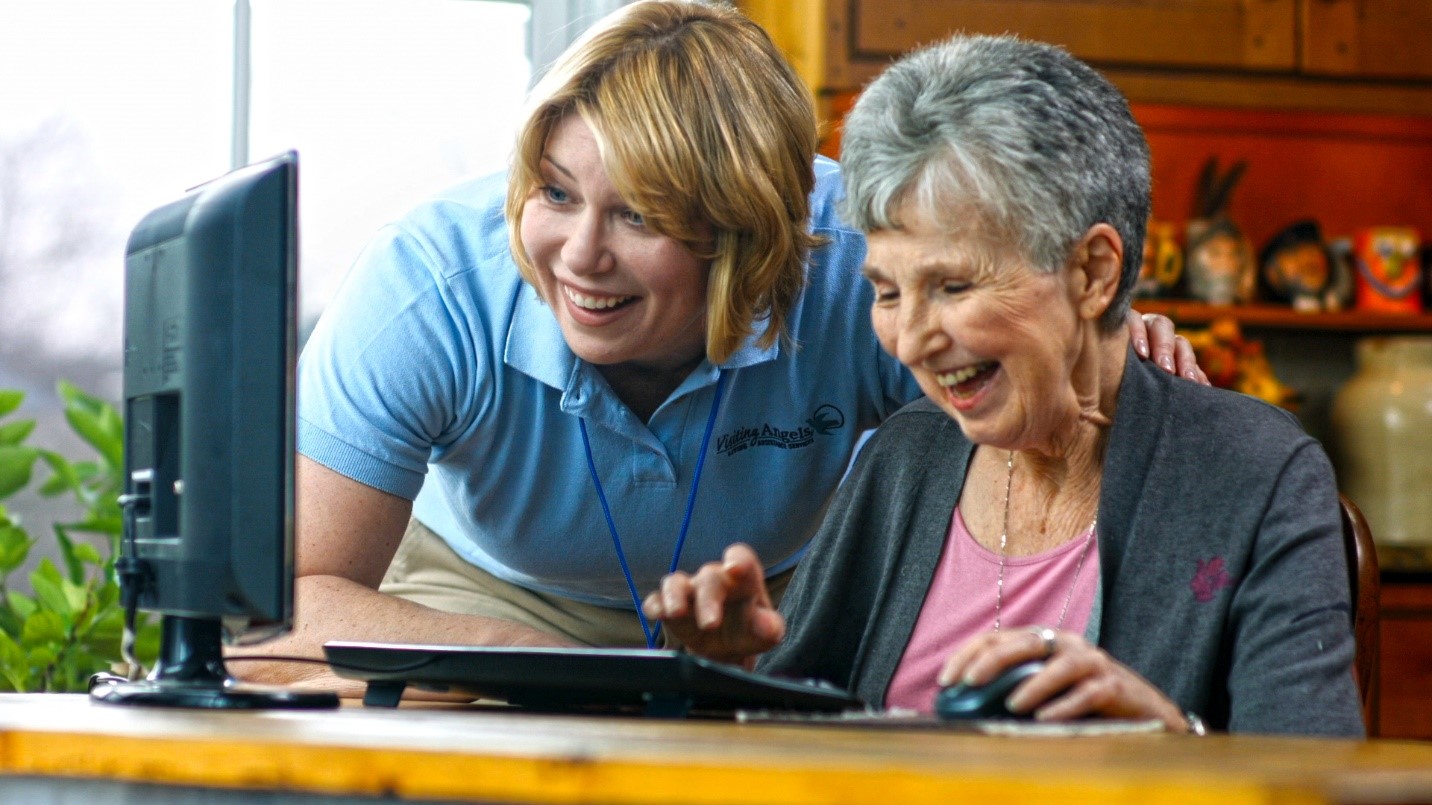10 Strategies and Tips for Long-Distance Caregiving
 Long-distance caregiving can be a strenuous and sometimes heart wrenching situation for family members and their senior loved ones. Adult children who reside in another state—or even a different country—may struggle to provide proper care for an elderly parent while managing travel time and expenses as well as work and family commitments. It can be a draining experience for everyone involved.
Long-distance caregiving can be a strenuous and sometimes heart wrenching situation for family members and their senior loved ones. Adult children who reside in another state—or even a different country—may struggle to provide proper care for an elderly parent while managing travel time and expenses as well as work and family commitments. It can be a draining experience for everyone involved.
In fact, research shows that long-distance caregivers are significantly more likely to report emotional distress than caregivers who live closer to their care recipients.
But long-distance caregiving doesn’t have to be so difficult. Essential personal home care services can assist senior loved ones with daily tasks and activities, while also giving long-distance family caregivers the peace of mind that comes with knowing a trusted professional is close at hand to help.
How Can Long-Distance Family Caregivers Be Most Effective?
If you are a long-distance family caregiver, here are 10 tips and strategies to help you effectively partner with relatives–and an in-home caregiver– to provide the help your loved one and family members need:
Discuss caregiving responsibilities. Take time to meet with other family members and in-home caregivers to talk about your loved one’s caregiving needs. Recognize and share what you can offer, but don’t be afraid to discuss your limitations. Find ways to complement each other’s strengths and agree ahead of time who will be responsible for which tasks.
Recognize when in-home care is needed. Long-distance family caregivers can have difficulty recognizing when a parent needs in-home care. Be aware of changes in your parent or loved one’s behavior. Tell-tale signs that professional in-home care is needed may include forgetting to take medications, no longer socializing regularly, or not properly caring for themselves.
Ask how you can be most helpful. Speak with your loved one’s professional caregiver and ask what you can do to help in the caring process and obligations. A team effort is always a good approach.
Have contacts who can keep you informed. Ask friends and neighbors to check in on your senior loved one regularly to make sure everything is okay.
Know the signs of elder abuse. As a long-distance caregiver, knowing the signs of elder abuse can help you keep your loved one safe. Superior at-home care from a qualified professional, like Visiting Angels, will go a long way toward preventing elder abuse. But you should always watch for signs such as mood changes, different spending or banking habits, increased isolation, unexplained injury, disheveled appearance, bed sores or similar preventable conditions.
Provide respite care for the primary family caregiver. If you live an extremely long distance, you won’t be available to help your loved one around the house regularly. However, a few days of respite care when your schedule allows can help you be more aware of your loved one’s needs and give you a much-needed break.
Evaluate your loved ones living space. Take time to determine if your parent or loved one’s living space is appropriate for their needs and condition. By working closely with a homecare professional and other family caregivers, you can help your loved one stay safe and avoid falls at home. If your loved one’s living space is not suitable, work to improve it or find a new housing arrangement that would benefit them. Visiting Angels provides a complete home care assessment at your loved one’s residence.
Make the most out of your visits. When you live far away from your senior parent or loved one, visiting them can be time-consuming, expensive, and difficult to plan. However, visits — even if they occur only a few times a year — are an ideal time to check up on your loved one’s well-being. In-home caregivers can handle many of your loved one’s daily household tasks, so you can make the most of your visit to enjoy each other’s company.
Be an information coordinator. While a professional caregiver may be occupied with your loved one’s day-to-day needs, you may be better equipped to work on long-term needs, such as legal and financial paperwork, that your loved one can’t manage. Creating and sharing a document to keep track of all your loved one’s needs can keep everyone in the loop to ensure the right care happens.
Plan for emergencies. In the event of an emergency, being prepared can make all the difference in the world. When you work with family and in-home caregivers to create and share a plan for emergencies that may occur based on your parent’s condition, it can be a lifesaver – literally.
Many family caregivers may not be able to provide the “hands-on” help they would like if they live far away. However, it is still possible to form a strong partnership with nearby family members and in-home caregivers to surround an elderly loved one with the compassionate care they need and deserve. For information on Visiting Angels’ long-distance services, and how we can help you find a caregiver.
We offer a free, no-obligation care assessment to help you get started with us. This initial meeting will allow us to learn more about your loved one's unique situation and discuss how our services can help.
Call Visiting Angels Westchester today at (914) 696-4200 for more information about our in home care in Westchester County, NY.
